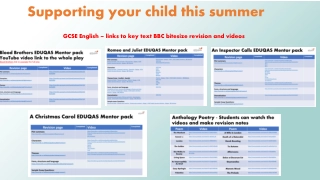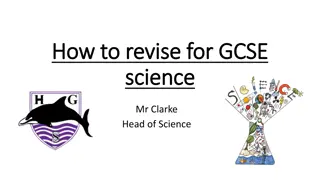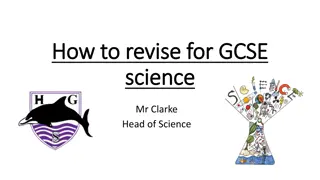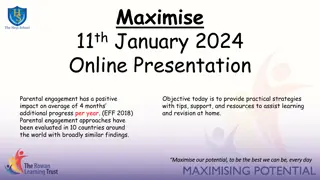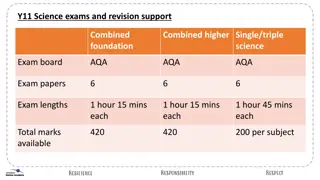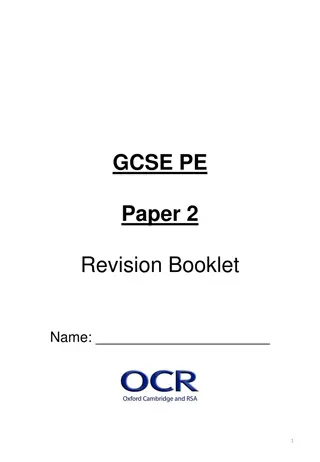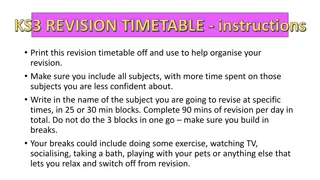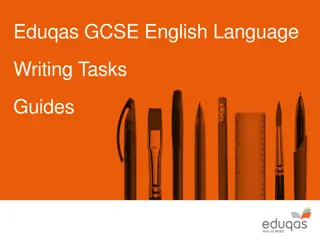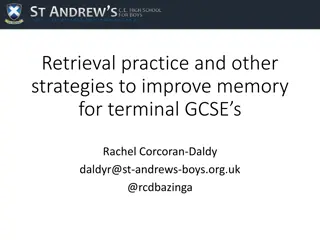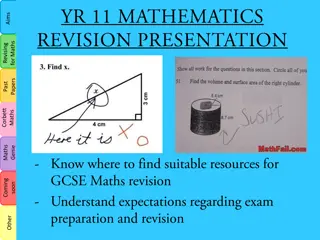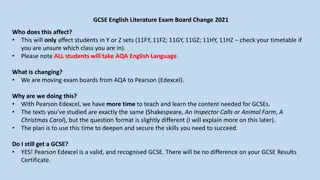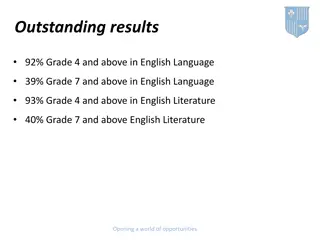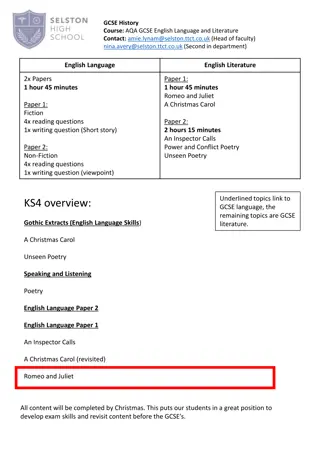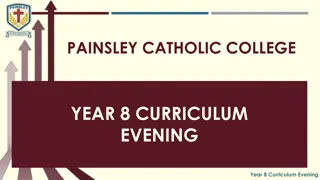Mastering GCSE Revision: A Lively Guide for Students
Empower GCSE students with engaging revision techniques through a lively magazine article. Discover the key elements of advisory writing while adopting a friendly and informal tone. Learn how to structure content, use rhetorical questions, and provide real-life examples to encourage effective revision habits.
Download Presentation

Please find below an Image/Link to download the presentation.
The content on the website is provided AS IS for your information and personal use only. It may not be sold, licensed, or shared on other websites without obtaining consent from the author.If you encounter any issues during the download, it is possible that the publisher has removed the file from their server.
You are allowed to download the files provided on this website for personal or commercial use, subject to the condition that they are used lawfully. All files are the property of their respective owners.
The content on the website is provided AS IS for your information and personal use only. It may not be sold, licensed, or shared on other websites without obtaining consent from the author.
E N D
Presentation Transcript
Non-Fiction Writing Lively Magazine Article
Do Now: Read the text below (1 minute in silence) and then, in pairs, discuss answers to these questions (3 minutes) ): ): What s the subject of this piece of writing? How would you describe the tone of this piece? Challenge: HOW has the writer made this piece lively (try to identify specific techniques)?
Did you identify any of these features? Any more? Exclamation marks Catchy sub-headings Use of adverbs like Simply Imperative verbs Modal verbs could Second person pronoun you
Write a lively article for your school magazine advising GCSE students on revision techniques. Purpose: Why has the text been written? To advise Audience: Who has it been written for? GCSE students Format:How has the text been organised? Magazine article Tone: What is the writer s attitude? Lively
Purpose: To advise Features of Advisory Writing Suggestions in the form of questions: How about ? Why not ? Have you thought about ? Modal verbs: You could.. You should.. You might.. Use of imperatives: Don t worry about.. Try not to Never Make sure that.. Rhetorical questions Have you ever..? Do you worry about ? Real life examples and quotations
Audience: young young people/school people/school students students If the students are at your school, refer to specific aspects of your own school. Adopt a friendly, informal tone. Words and sentences should not be too complex. Sub-headings might be appropriate.
Tone: Lively Writing Change the sentence structure and the word choices in this statement to make it more lively for your audience. Proper revision is the best way to get good grades in your GCSEs. It is very important to begin revising early and to leave plenty of time to get through everything. Young people sometimes lack the concentration to revise properly.
WHAT ARE YOU GOING TO WRITE ABOUT? DISCUSS FOR ONE MINUTE THEN WE WILL POOL YOUR IDEAS
What are your targets? Writing Challenge Writing Challenge E.g. Use modal verbs Purpose: Advise Audience: Young people Format: Article Tone: Lively Vocabulary Write a lively article for your school magazine advising GCSE students on revision techniques. E.g. Some short sentences E.g. sub-headings Fill in your features for writing: to advise for young people articles with a lively tone E.g. Alliteration Add features of this type of writing to your checklist. SPAG
Write a lively article for your school magazine advising GCSE Article Structure/Plan 1. Byline summarising the viewpoint. 2. Sub-headings throughout. 3. Opening paragraph use a rhetorical question to grab attention. 4. Paragraph that develops your advice use hyperbole (exaggeration). 5. Paragraph that includes real life examples. 6. Strong ending with emotive language. 7. Conclusion some top tips use pronouns, you/ your and a cyclical loop. PLAN YOUR ARTICLE students on revision techniques.


